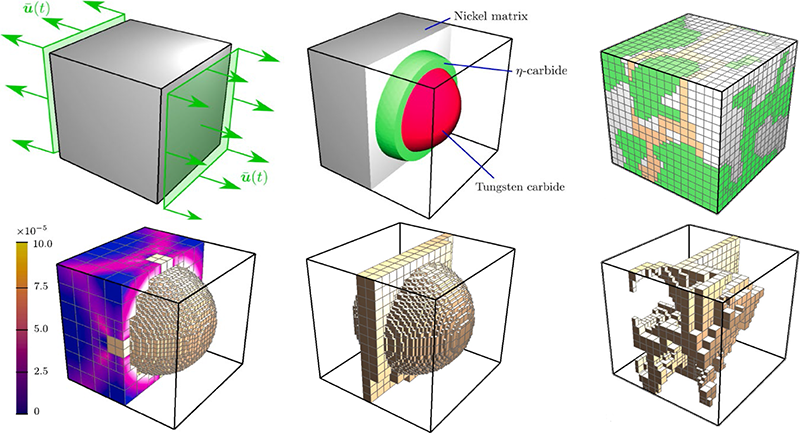Just another WordPress site - Ruhr-Universität Bochum
Continuum Mechanics
- Prof. Dr. Daniel Balzani
- Prof. Dr. Klaus Hackl
Research
The ASG includes experts in the fields of theoretical and applied mechanics, numerical and simulation-based physics and material sciences, thus providing an excellent complement to the research conducted at ICAMS. It fosters synergies in the development of constitutive laws by numerically investigating the kinetic evolution of microstructures for a huge variety of materials. Thereby, the ASG institutes use various theoretical approaches to material modeling, such as variational methods, energy-based descriptions, and stochastic approaches.

The ASG collaborates with ICAMS in combining geometrically nonlinear mechanical models and algorithms with numerical simulations of non-mechanical, physical fields to enable chemo-mechanical simulations of materials undergoing large strains. For example, Lithium ion batteries operate by diffusion of ions in and out of nano-sized spherical particles consisting of ceramic materials. This diffusion is accompanied by a change of specific volume exceeding 100%. The eigen-stresses generated by this process cause nano-cracking of the particles. These inhibit diffusion, which in turn compromises the capacity of the batteries. Modeling these phenomena requires the coupling of electrochemistry, diffusion, elasticity and fracture mechanics and is thus an example of collaboration. Numerical simulations based on such models may lead to the design of better batteries with increased capacity and lifetime. Both, for improving the understanding of the underlying processes as well as for the development of tailored material combinations and/or treatments during processing, the knowledge and expertise concentrated within the ASG provides a unique basis for successful research.
